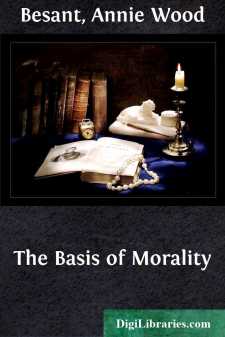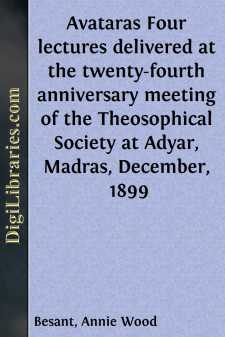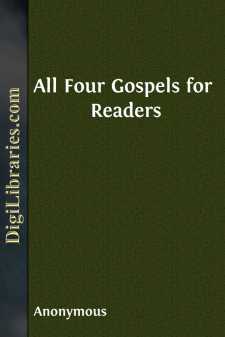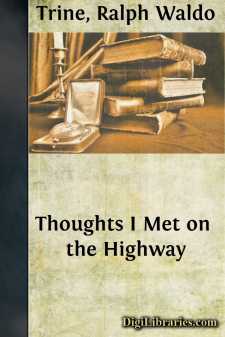Categories
- Antiques & Collectibles 13
- Architecture 36
- Art 48
- Bibles 22
- Biography & Autobiography 813
- Body, Mind & Spirit 142
- Business & Economics 28
- Children's Books 15
- Children's Fiction 12
- Computers 4
- Cooking 94
- Crafts & Hobbies 4
- Drama 346
- Education 46
- Family & Relationships 57
- Fiction 11829
- Games 19
- Gardening 17
- Health & Fitness 34
- History 1377
- House & Home 1
- Humor 147
- Juvenile Fiction 1873
- Juvenile Nonfiction 202
- Language Arts & Disciplines 88
- Law 16
- Literary Collections 686
- Literary Criticism 179
- Mathematics 13
- Medical 41
- Music 40
- Nature 179
- Non-Classifiable 1768
- Performing Arts 7
- Periodicals 1453
- Philosophy 64
- Photography 2
- Poetry 896
- Political Science 203
- Psychology 42
- Reference 154
- Religion 513
- Science 126
- Self-Help 84
- Social Science 81
- Sports & Recreation 34
- Study Aids 3
- Technology & Engineering 59
- Transportation 23
- Travel 463
- True Crime 29
The Basis of Morality
Description:
Excerpt
I
REVELATION
Must religion and morals go together? Can one be taught without the other? It is a practical question for educationists, and France tried to answer it in the dreariest little cut and dry kind of catechism ever given to boys to make them long to be wicked. But apart from education, the question of the bedrock on which morals rest, the foundation on which a moral edifice can be built that will stand secure against the storms of life—that is a question of perennial interest, and it must be answered by each of us, if we would have a test of Right and Wrong, would know why Right is Right, why Wrong is Wrong.
Religions based on Revelation find in Revelation their basis for morality, and for them that is Right which the Giver of the Revelation commands, and that is Wrong which He forbids. Right is Right because God, or a RÐÐÐÐsÐÐÐÐhi or a Prophet, commands it, and Right rests on the Will of a Lawgiver, authoritatively revealed in a Scripture.
Now all Revelation has two great disadvantages as a basis for morality. It is fixed, and therefore unprogressive; while man evolves, and at a later stage of his growth, the morality taught in the Revelation becomes archaic and unsuitable. A written book cannot change, and many things in the Bibles of Religion come to be out of date, inappropriate to new circumstances, and even shocking to an age in which conscience has become more enlightened than it was of old.
The fact that in the same Revelation as that in which palpably immoral commands appear, there occur also jewels of fairest radiance, gems of poetry, pearls of truth, helps us not at all. If moral teachings worthy only of savages occur in Scriptures containing also rare and precious precepts of purest sweetness, the juxtaposition of light and darkness only produces moral chaos. We cannot here appeal to reason or judgment for both must be silent before authority; both rest on the same ground. "Thus saith the Lord" precludes all argument.
Let us take two widely accepted Scriptures, both regarded as authoritative by the respective religions which accept them as coming from a Divine Preceptor or through a human but illuminated being, Moses in the one case, Manu in the other. I am, of course, well aware that in both cases we have to do with books which may contain traditions of their great authors, even sentences transmitted down the centuries. The unravelling of the tangled threads woven into such books is a work needing the highest scholarship and an infinite patience; few of us are equipped for such labour. But let us ignore the work of the Higher Criticism, and take the books as they stand, and the objection raised to them as a basis for morality will at once appear.
Thus we read in the same book: "Thou shalt not avenge, nor bear any grudge against the children of thy people, but thou shalt love thy neighbour as thyself." "The stranger that dwelleth with you shall be unto you as one born among you, and thou shalt love him as thyself, for ye were strangers in the land of Egypt." "Sanctify yourselves therefore and be ye holy." Scores of noble passages, inculcating high morality, might be quoted....





















